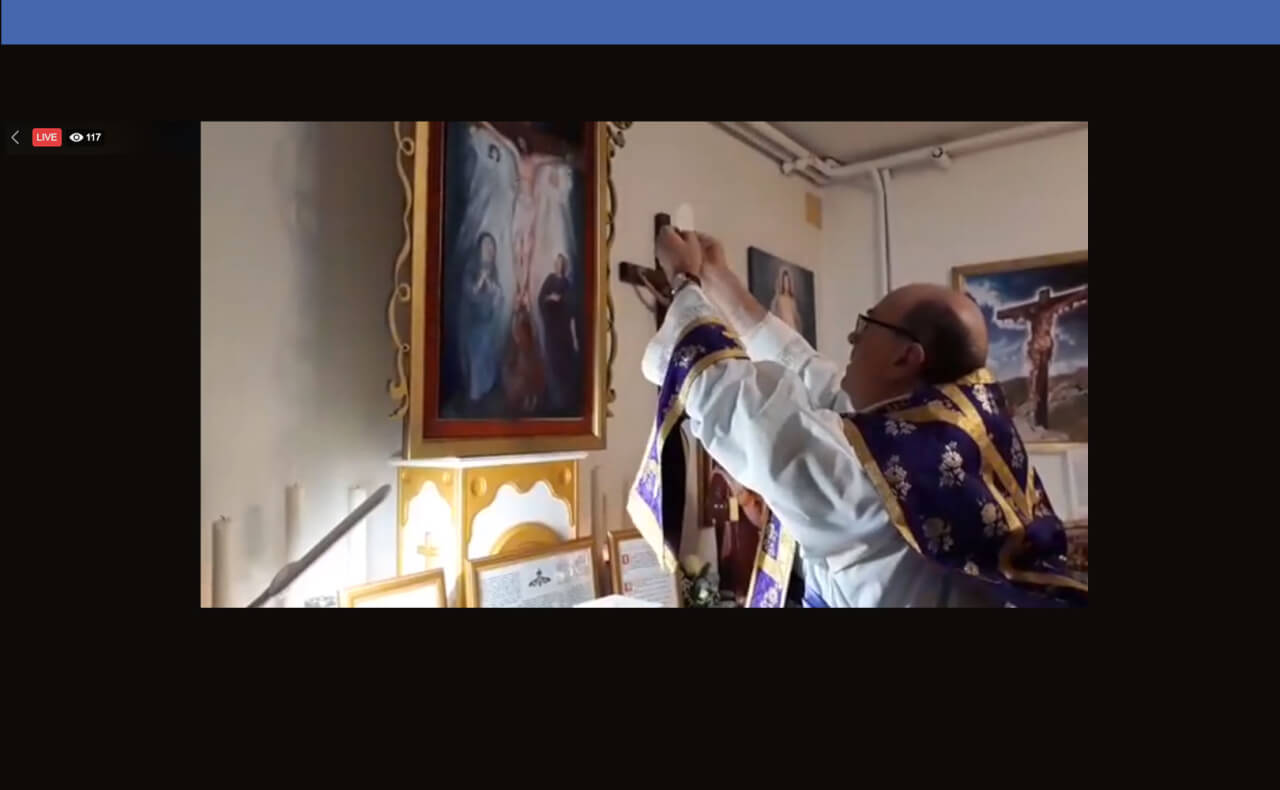It’s Saturday morning, a few days before Christmas, and I’m working on some cards I need to send out. As is often the case, I have various social media platforms open on my computer, and I notice a post in one of the Facebook groups I’m a part of.
As I click the link, I am brought to a live video of a priest in Italy offering the traditional Latin Mass.
The priest is just finishing the Offertory and beginning the Preface. As he begins to pronounce the words aloud (it’s a low Mass), I hear the familiar, “Per ómnia sæcula sæculórum,” and the next responses come unbidden to my mind:
V. Dóminus vobíscum.
R. Et cum spíritu tuo.
V. Sursum corda.
R. Habémus ad Dóminum.
V. Grátias agámus Dómino, Deo nostro.
R. Dignum et iustum est.
It is an odd thing, because I’ve been intellectually aware of the universality of the traditional Latin Mass for many years. I’ve made arguments in favor of it more times than I can count. But for some reason, today it strikes me in a visceral way: I don’t know five words of Italian, I could probably never communicate with this priest in a conversation, but I know exactly what’s going on in front of me in precisely the way I didn’t when I was a young man gallivanting around the world, seeking out Masses wherever I went.
Since becoming a traditional Catholic in 2004, I’ve done very little traveling. I was busy starting a family, working my way from job to job trying to provide, and not having the chance to really experience what it’s like to be in a foreign place but always at home during the Mass.
But I remember what it was like not to feel that way. I remember attending Masses in Budapest and Bratislava and feeling totally lost. I remember trying to pick out enough familiar Spanish words in Monterrey or Mexico City that I could really follow along. From Krakow to Salzburg, Assisi to Vienna, the story was the same. Yes, it was possible to recognize the visual elements of the new Mass, but without knowing any of the words, without being able to simply open a Missal and know the propers and read the canon, I felt alienated and lost. I was an outsider despite sharing my faith with the people I stood alongside.
There are lots of arguments, when we talk about liturgy, about the importance of various aspects, and whether Latin is truly a crucial component of a Universal Mass for a Universal Church. I can only tell you that today, I was deeply struck by how beautiful and incredible a thing that really is, and how much in this time of discord and struggle we could benefit from an authentic, unified Catholic identity again.


